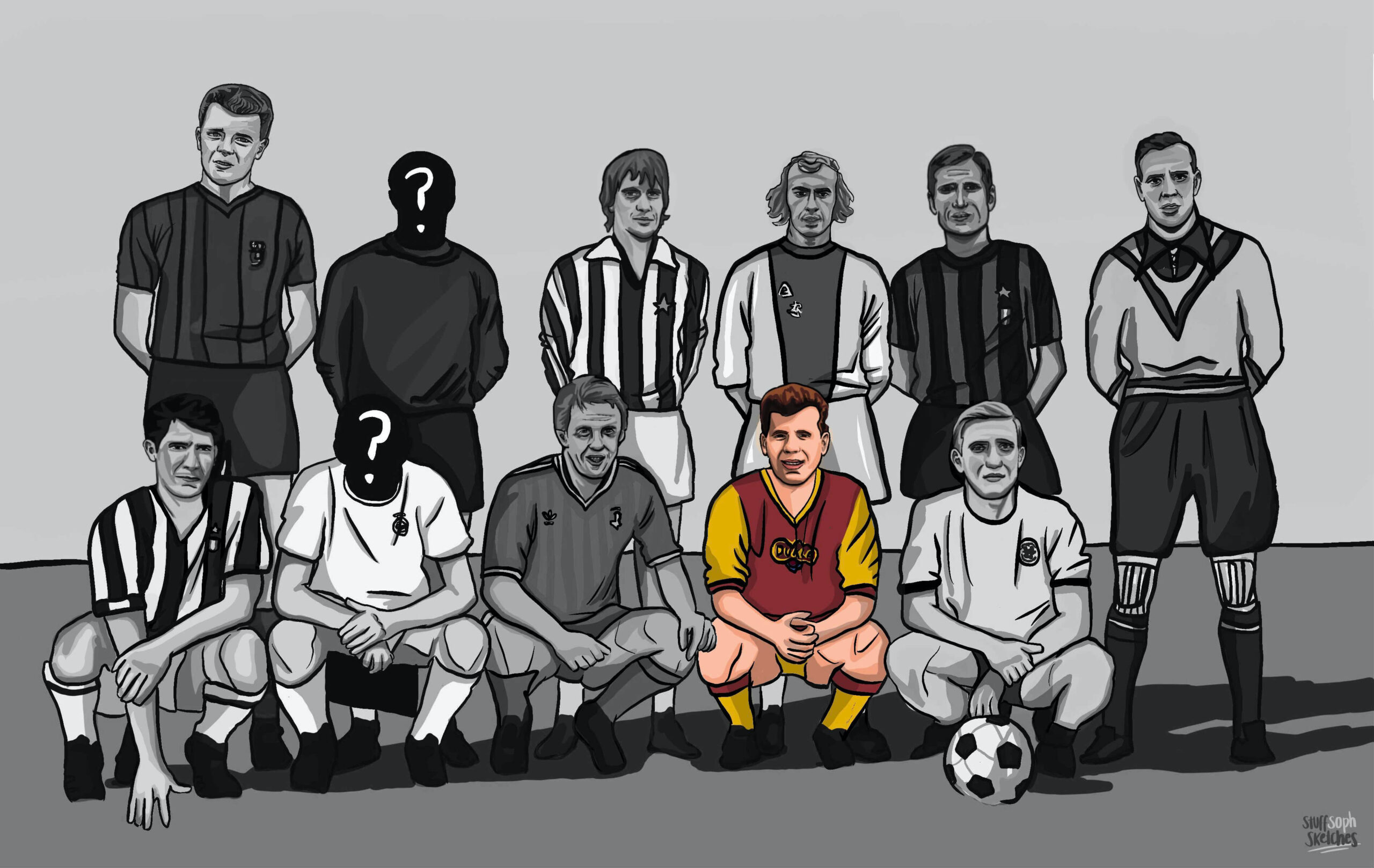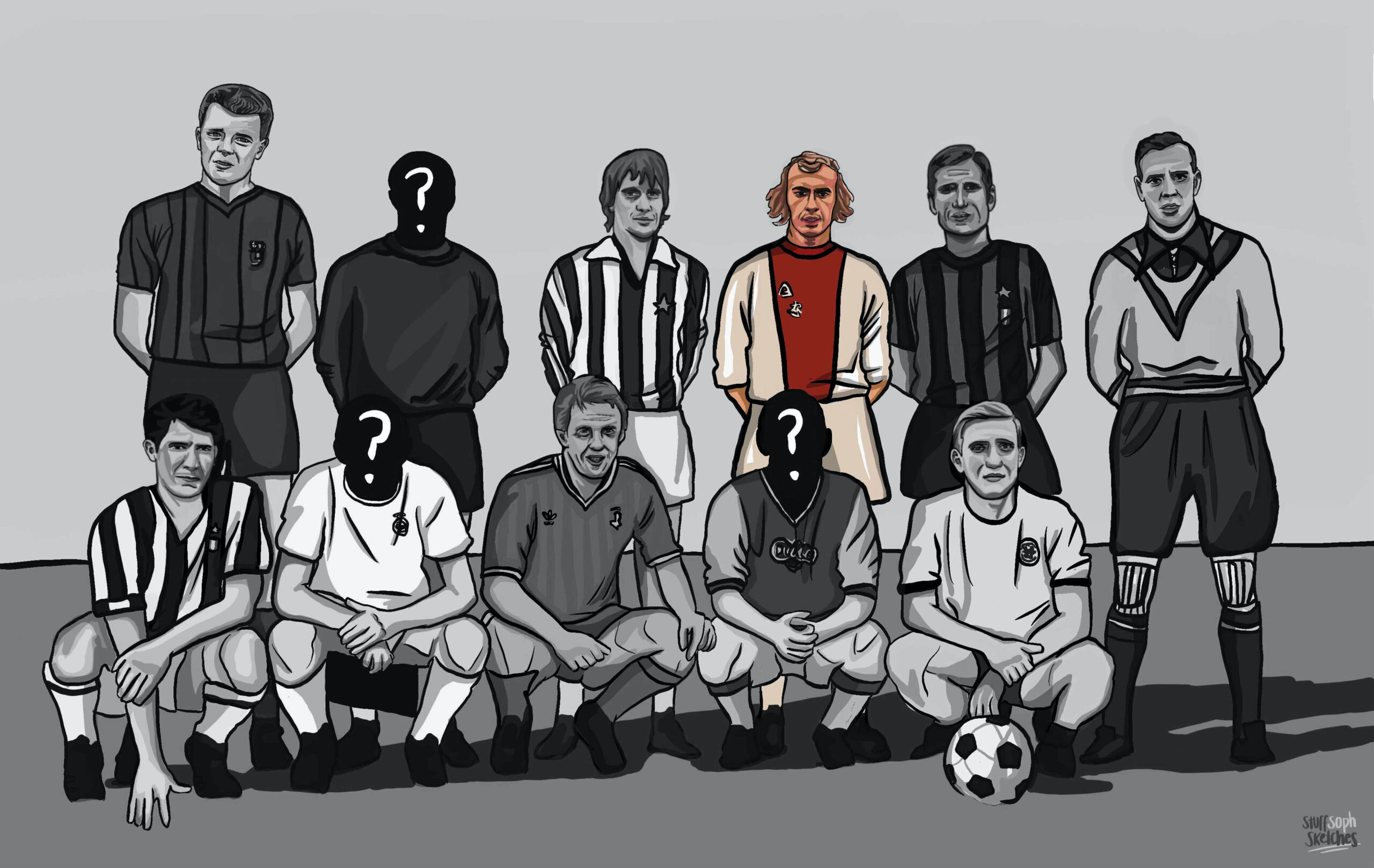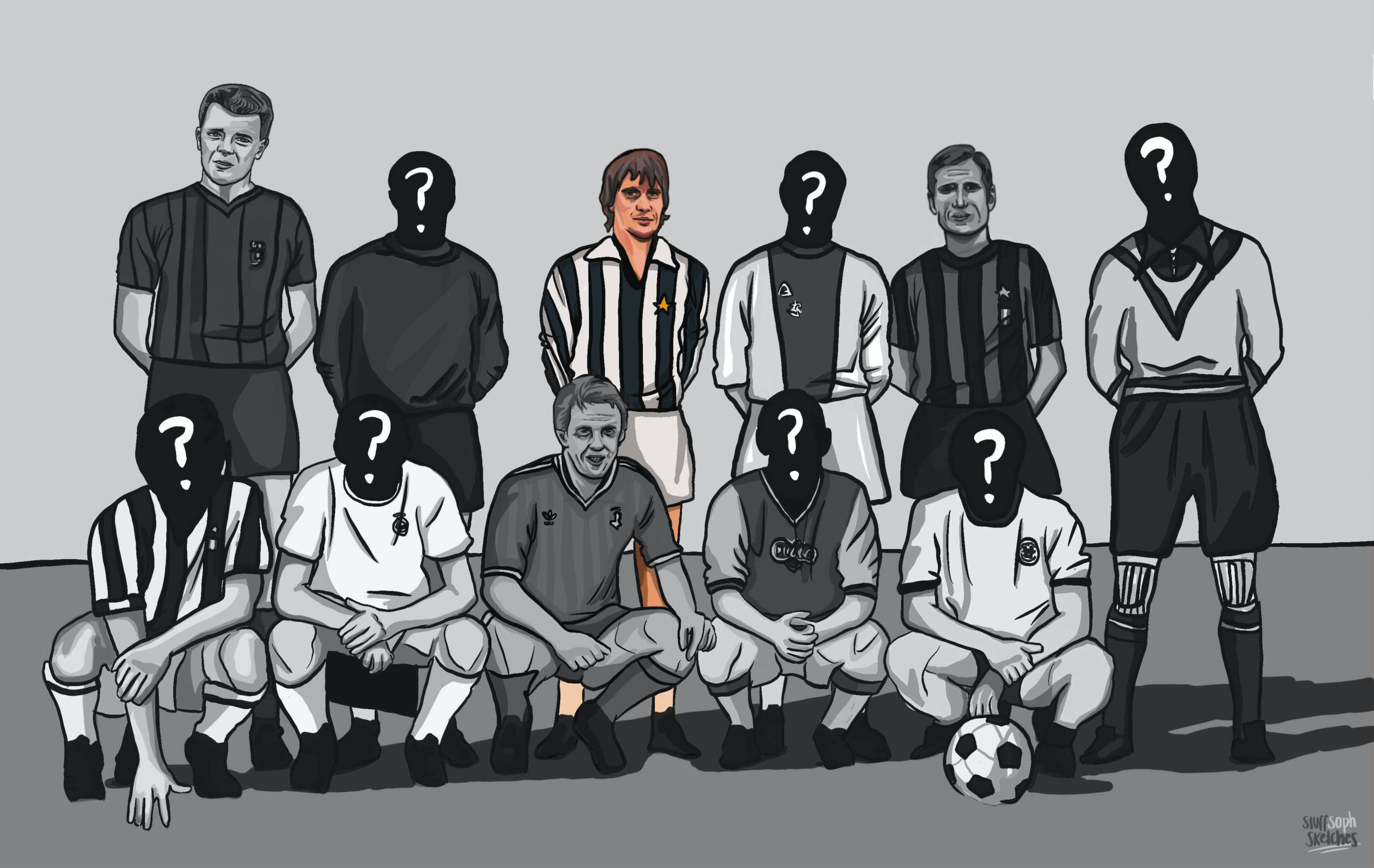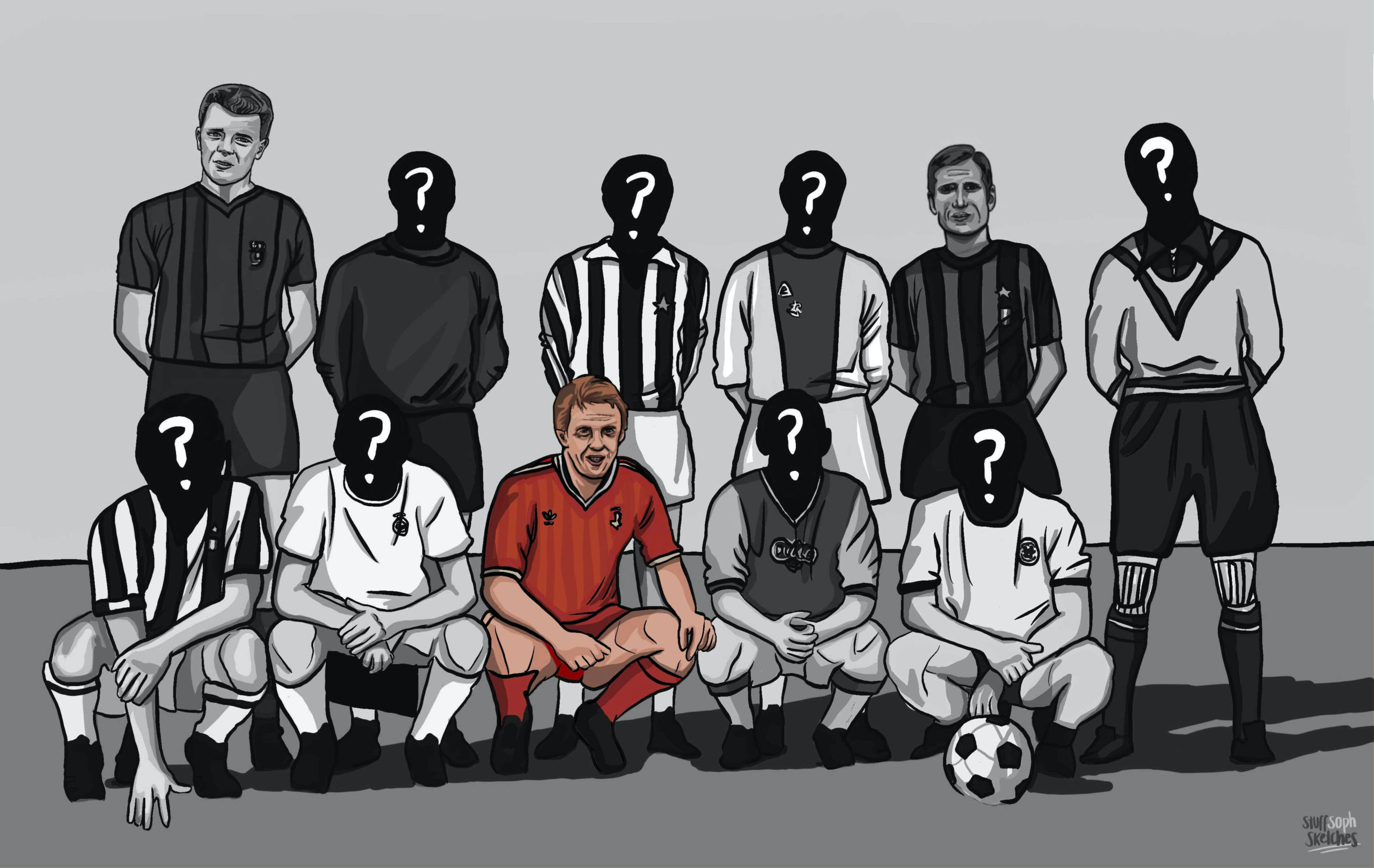In 1962, Josef Masopust became the first Czech footballer to win the European Player of the Year award – a feat that stood right up until Pavel Nedvêd won the Ballon d’Or in 2003. In spite of this honour and the fact that the great Pelé was a fan of his talent, Masopust is little known by footballing fans outside of the Czech Republic. In part, this is because of the era in which Masopust played with its lack of video footage but also as a result of playing almost his entire career inside the Eastern Bloc. However, the few occasions when the Western Bloc was fortunate enough to see Masopust in action and he certainly didn’t fail to impress.
The fourth of six children, Masopust was born in 1931 into the first Czechoslovak Republic and began his footballing career at FK Teplice in 1950. In 1952, Masopust joined the Czechoslovak Armed Forces team, renamed “Dukla Prague” four years later. Dukla would come to represent the communist regime in Czechoslovakia due to the advantages that they received. The team were placed directly in the topflight of the national league and were then allowed to sign up, without sporting merit, the best players from other clubs – including Masopust, whom FK Teplice were reportedly coerced into selling.
Regardless of how Masopust ended up playing for Dukla, it didn’t take long for their support base to appreciate the talent that was now playing for them. Originally signed as a left-half, Masopust was Czechoslovakia’s best player at a time when the game was going through a great number of tactical changes. Technically gifted and immensely skilful, displaying an excellent use of both feet and vision above the norm, Masopust’s trademark were his jinking runs that would regularly start inside his own half and end in that of the opposition’s. Masopust would slalom, moving the ball from foot to foot, as he danced past defenders as if they were stationary training cone. Pelé once joked that Masopust’s ball-work was so wonderful he must have been to Brazil.
Masopust was a Frank Lampard with bells on, he was a box-to-box powerhouse who could win the ball with tigerish tackles and then use it with skill and accuracy.
As the game evolved tactically, Masopust became the complete box-to-box midfielder. Sport historian, Norman Giller stated that ‘Masopust was a Frank Lampard with bells on, he was a box-to-box powerhouse who could win the ball with tigerish tackles and then use it with skill and accuracy’. His extraordinary physical attributes meant that he was able to run for ninety minutes and be a strong presence in both his own and the opposition’s half. Added to his excellent ball control and impressive passing ability, Masopust was a calm and deft player who was capable of hitting the net too. He scored seventy-nine goals in 386 appearances for Dukla as well as numerous assists for his teammates.
In sixteen years with Dukla, Masopust won eight league titles, three Czech Cups, one International Soccer Cup and three American Challenge Cups (two competitions that are now non-existent). Despite their domestic triumphs, success in Europe continued to allude Dukla with their finest season in the European Cup coming in 1967, losing in the semi-final to Celtic (the eventual winners). Dukla’s failure to transfer their domestic successes to the European competitions, coupled with the cold war difficulties between teams on the West and the East, meant that Masopust’s brilliance was rarely witnessed by football fans outside of the Eastern Bloc. As a result, it was only during international competitions that the world managed to see just how good Masopust was and the world would be far from disappointed.
After inspiring Czechoslovakia to a third-place finish in the inaugural European Championship in 1960, it was during the World Cup of 1962 that the rest of the world began to take full notice of Josef Masopust. Czechoslovakia were considered slow but masterful technicians and whilst everyone else wrote them off (even themselves to some extent), they were able to use this perceived slowness to their advantage. The Czechs were not slow; they were precise. Good teamwork was central to this precision and was somewhat guaranteed as most of the them played together at Dukla. If you wrote Czechoslovakia off, it was at your own peril. After Masopust and Andrej Kvašnák’s skilful display in their opening group match, Spain were defeated 1-0. In the next group game against Brazil, it was an act of chivalry that earnt Masopust the nickname, “The Knight”. With Pelé injured, unable to move properly and easy to tackle, Masopust refused to challenge his injury-stricken opponent, earning The Brazilian’s respect and the admiration of the footballing world.
Czechoslovakia progressed to the World Cup final where, despite Masopust scoring the opening goal with a well place left footed shot against Brazil, Czechoslovakia would go on to lose 3-1. Masopust would have to make do with being named the runner up to the Player of the Tournament. However, he was rightfully named in the World Cup XI and won the European Player of the Year in 1962. In 1963, Masopust was then selected to represent a World XI team that would play against England as part of the FA’s centenary celebrations.
In 1968, as a reward for his honourable service, Masopust was given the rare privilege of being allowed to leave Czechoslovakia to play football abroad and earn a little more money (something he had been previously denied). During the next two years, Masopust enjoyed the position of player-coach at Crossing Molenbeek helped the Belgian team reach promotion into the first division for the first time in the club’s history.
Masopust scored ten goals in sixty-three appearances for Czechoslovakia and he was voted the Czech Republic’s Golden Player in 2004. Sadly, in 2015, Masopust died in Prague at the age of eighty-four after battling with a long illness. Four years previously, a statue of Masopust was unveiled outside of Dukla Prague’s stadium; as to be expected, Masopust humbly responded to the honour by pointing out that he was merely one of many who had worn his country’s shirt with pride. For those that were lucky enough to see him play, such a statement doesn’t begin to do his talent justice. Whilst he may have viewed himself as one of many, to those who saw him play, Josef Masopust was actually one in a million.



